DIY Herbal Facial Serums: Create Your Perfect Formula
Holistic Beauty as a Self-Care Practice
Facial serums are powerful skincare essentials that deliver targeted nourishment and active ingredients directly to the skin. But serums can be much more than just a product—they’re an opportunity to connect with yourself through sustainable, mindful creation. By crafting your own skincare products, you can fully customize your skincare to suit your unique needs while embracing the magic of each ingredient. This isn’t just about addressing specific skin concerns; it’s about transforming your routine into a ritual of self-care, creativity, and intention. Bring the art of alchemy into your bathroom and let’s explore the beauty of crafting serums that are as unique as you are. In this guide, we’ll revisit the basics of serums, dive deeper into their versatility, and share easy-to-follow recipes to help you take your self-care to the next level.
Recap: The Essentials of Facial Serums
In our previous post, All About Facial Serums, we dove into the world of serums, exploring their benefits and why they’re such a vital step in any skincare routine. Let’s revisit the key takeaways:
What Makes Serums Unique?
Facial serums are highly concentrated, lightweight formulations designed to deliver active ingredients deep into the skin. Their versatility allows them to target a wide range of skin concerns, such as dryness, fine lines, uneven tone, and blemishes. With simple yet powerful formulas, serums are a skincare game changer.
Types of Serums
Oil-Based Serums: These serums replicate the skin’s natural sebum, helping to lock in hydration and shield the skin from environmental damage. They are especially beneficial for dry and combination skin types, offering long-lasting nourishment.
Water-Based Serums: Known for their hydrating properties, water-based serums feature water-soluble active ingredients like hyaluronic acid or Vitamin C. They provide essential moisture without the added weight of oils, making them ideal for oily or acne-prone skin.
Skin-Type Adaptability
No matter your skin type, serums can be tailored to suit your needs. For dry skin, oil-based serums with rich, nourishing oils like evening primrose or olive oil deliver intense moisture. If you have combination skin, lightweight oils like jojoba or squalane balance hydration without feeling greasy. For oily skin, a water-based serum hydrates without clogging pores, or a fast-absorbing oil serum can provide moisture without overwhelming your complexion.
If you want to learn more about skintypes check out my post Understanding Different Skin Types and How to Care for Them!
How to Use Serums for Maximum Benefit
Incorporating serums into your routine requires understanding their order of application. Oil-based serums work best when applied after water-based products like toners or moisturizers to seal in hydration. Conversely, water-based serums should precede moisturizers, allowing their active ingredients to absorb fully into the skin. This layering approach ensures maximum benefits and complements your overall skincare ritual.
Facial serums are more than just products—they’re tools for transformation. By selecting the right serum, you can take control of your skincare, catering to your specific concerns for healthy, glowing skin.
Why Go DIY?
Creating your own facial serums isn’t just about saving money or avoiding synthetic additives, it’s about reclaiming control over your skincare routine and infusing it with intention. DIY serums empower you to craft products that are perfectly tailored to your skin’s unique needs, turning a simple task into a meaningful ritual of self-care.
Benefits of DIY Serums
Customization: No two people’s skin is exactly alike, and commercial serums often take a one-size-fits-all approach. By going DIY, you can craft formulations that address your specific skin type and concerns, whether that’s dry patches in the winter, hormonal breakouts, or uneven tone.
Transparency: When you make your own serums, you know every single ingredient that goes into your formula. You can trust that your product is free of unnecessary fillers, harsh chemicals, or synthetic fragrances. This level of transparency allows you to create clean, ethical skincare you can feel good about.
Cost-Effective: High-quality serums don’t have to come with a high price tag. Many DIY serums cost a fraction of their store-bought counterparts, using ingredients that can be repurposed across your skincare projects. Over time, you’ll not only save money but also gain the satisfaction of creating something valuable with your own hands.
The Power of Herbal Serums: By incorporating natural botanical extracts and essential oils, you elevate your skincare with potent antioxidants, soothing anti-inflammatory properties, and deep hydration. Herbs and botanicals allow you to harness the healing power of nature, offering results that feel as good as they look.
A Ritual of Creation and Self-Care
Making your own serums is about more than the end product, it’s about the process. There’s something inherently magical about selecting each ingredient, blending them together, and creating a product that’s uniquely yours. This intentionality transforms a simple skincare routine into a sensory experience of care and connection, nourishing both your skin and your spirit.
By bringing this creativity into your routine, you’re not only embracing sustainability but also creating a ritual that’s empowering, mindful, and deeply personal. With every drop, you’re reminded of the care and thought you poured into crafting something just for you.
Now, let’s dive into a collection of easy, versatile serum recipes to help you take your self-care into your own hands. From hydration to anti-aging and everything in between, there’s a serum here to meet your needs and inspire your creativity
Key Ingredients for Your DIY Serums
Choosing the right ingredients is essential to crafting facial serums that address your skin type and specific concerns. By combining carrier oils with essential oils, you can create powerful, targeted blends that deliver nourishment, hydration, and balance.
Carrier Oils: The Foundation
Carrier oils form the base of any oil-based serum, providing a vehicle for essential oils and delivering their own nourishing benefits.
Jojoba Oil: This lightweight oil closely resembles the skin’s natural sebum, making it suitable for all skin types, especially combination or sensitive skin. It balances oil production while leaving the skin feeling hydrated.
Rosehip Oil: Packed with vitamins A and C, rosehip oil promotes skin regeneration and can help reduce the appearance of scars, fine lines, and hyperpigmentation. Ideal for aging or damaged skin.
Argan Oil: Known for its deeply moisturizing and softening properties, argan oil is perfect for dry or mature skin types, providing a luxurious, velvety finish.
Grapeseed Oil: Lightweight with astringent properties, grapeseed oil helps tighten and tone the skin, making it ideal for oily or acne-prone complexions.
Sweet Almond Oil: Rich in vitamin E and fatty acids, this gentle oil soothes and hydrates, making it a great choice for dry or irritated skin.
Hemp Seed Oil: High in omega-3 and omega-6 fatty acids, hemp seed oil reduces inflammation and balances oily skin, making it great for acne-prone individuals.
Essential Oils: Targeted Benefits
Essential oils are highly concentrated plant extracts that offer therapeutic properties for specific skin concerns, along with a pleasant aroma to enhance your self-care routine.
Lavender Essential Oil: Calming and antimicrobial, lavender soothes redness and irritation while promoting relaxation.
Frankincense Essential Oil: A skin-reviving oil that helps reduce fine lines, improve elasticity, and even out skin tone—perfect for anti-aging blends.
Tea Tree Essential Oil: A powerful antimicrobial that combats acne and reduces inflammation, making it great for blemish-prone skin.
Geranium Essential Oil: Known for its balancing properties, geranium oil regulates oil production and improves skin elasticity.
Chamomile Essential Oil: Calming and anti-inflammatory, chamomile is ideal for sensitive or inflamed skin.
Rose Essential Oil: A luxurious addition, rose essential oil hydrates, reduces redness, and leaves the skin with a radiant glow.
Ylang Ylang Essential Oil: Great for balancing oil production and supporting overall skin rejuvenation.
By combining these oils thoughtfully, you can create personalized serums that address your skin’s unique needs while indulging in the ritual of handcrafted self-care.
Herbal Serum Recipes for Every Skin Concern
Recipe 1: Anti-Aging Serum
This serum rejuvenates skin and promotes a youthful glow.
Ingredients:
1 tbsp Rosehip Oil
1 tbsp Argan Oil
5 drops Frankincense Essential Oil
3 drops Lavender Essential Oil
Instructions:
Combine the carrier oils in a small glass bottle.
Add essential oils and shake well to mix.
Store in a cool, dark place for up to 6 months.
Recipe 2: Brightening Serum
Perfect for dull or uneven skin tones, this serum adds radiance.
Ingredients:
1 tbsp Jojoba Oil
1 tbsp Grapeseed Oil
5 drops Lemon Essential Oil
3 drops Geranium Essential Oil
Instructions:
Mix the carrier oils in a small glass bottle.
Add essential oils and shake thoroughly.
Store in a cool, dark place for up to 6 months.
Recipe 3: Hydrating Serum
Ideal for dry, thirsty skin, this serum locks in moisture for a dewy complexion.
Ingredients:
1 tbsp Argan Oil
1 tbsp Sweet Almond Oil
5 drops Rose Essential Oil
3 drops Chamomile Essential Oil
Instructions:
Combine the carrier oils in a small glass bottle.
Add essential oils and shake well.
Store in a cool, dark place for up to 6 months.
Tips for Success
Patch Test: Always test new serums on a small patch of skin before applying to your face.
Storage: Use dark glass bottles to protect oils from light and ensure longevity.
Experimentation: Don’t be afraid to tweak recipes! Swap oils based on your preferences or specific needs.
In Conclusion
Creating your own herbal facial serums is a rewarding and empowering way to elevate your skincare routine. By understanding your skin’s needs and harnessing the power of botanicals, you can craft customized solutions that address concerns while celebrating natural, holistic beauty.
Take control of your self-care and have fun experimenting with these DIY recipes—your skin will thank you for it!


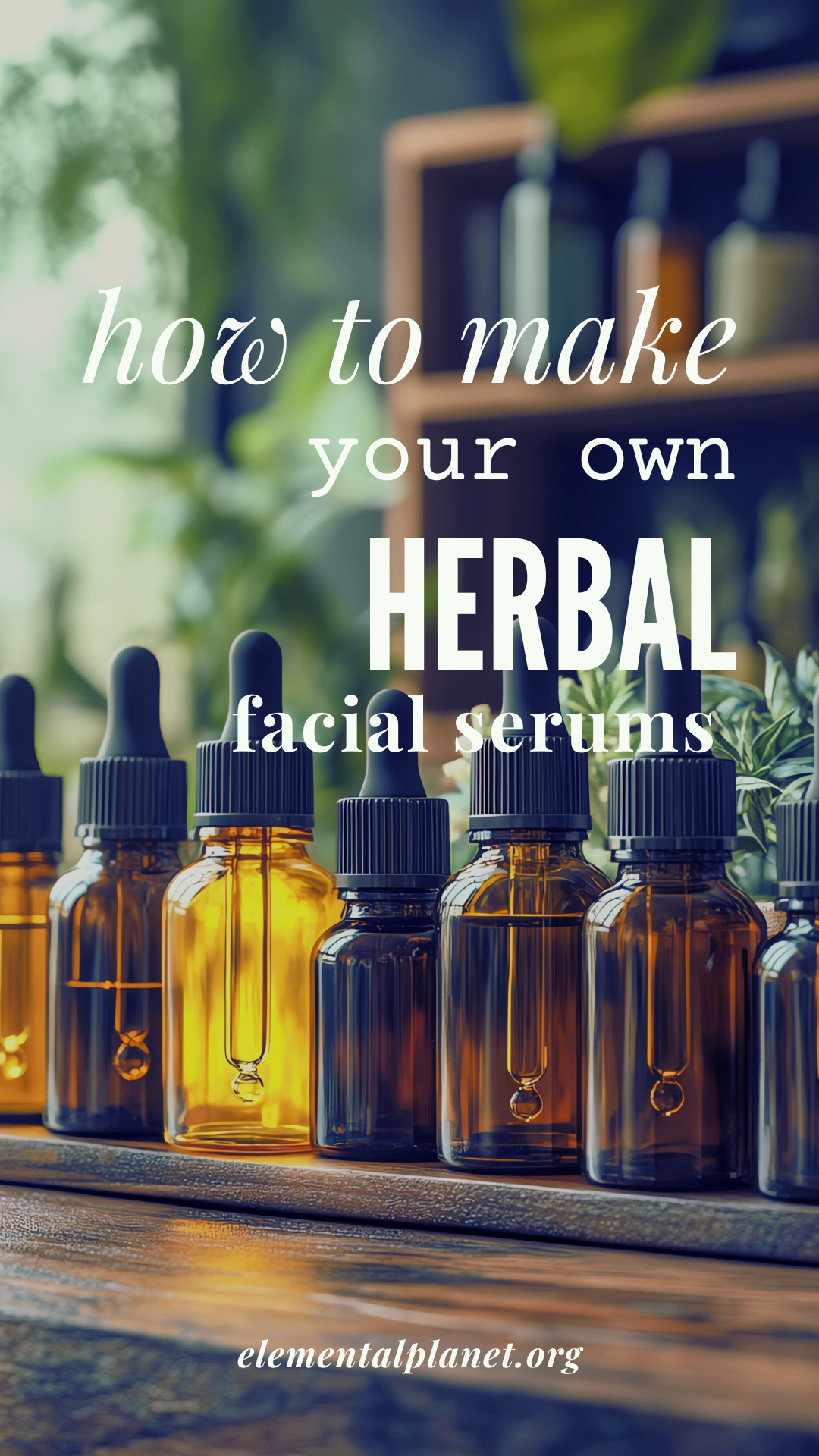








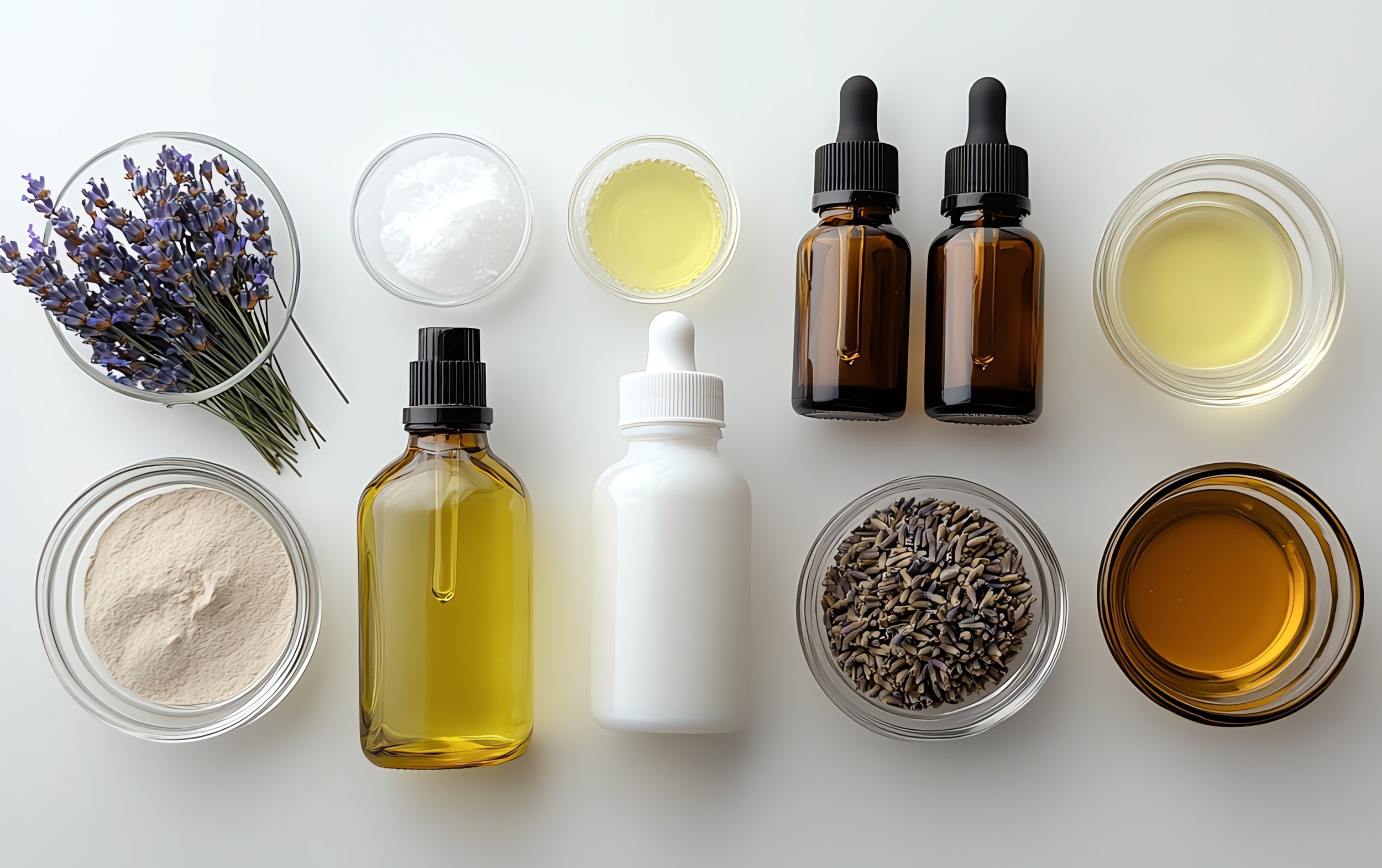
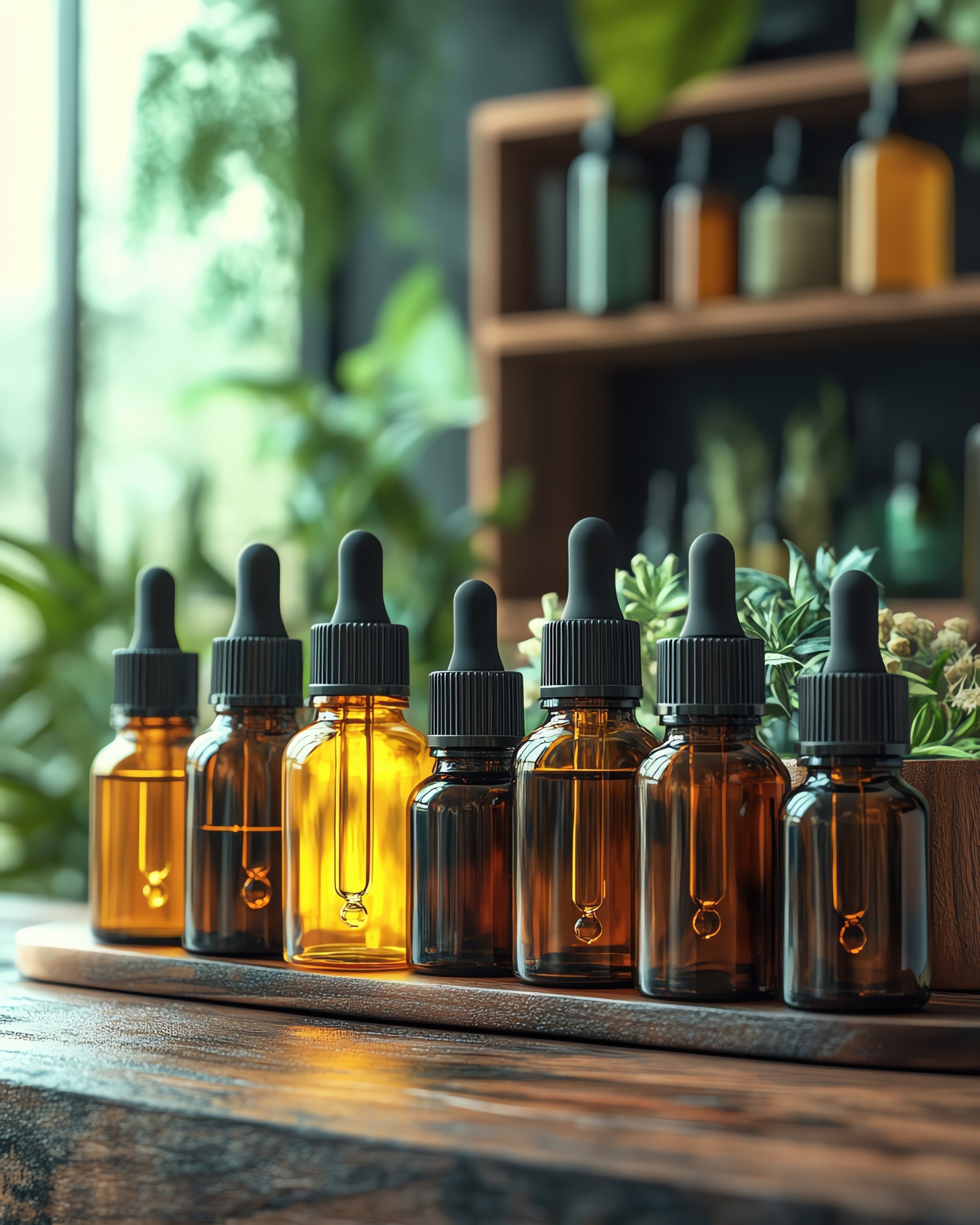
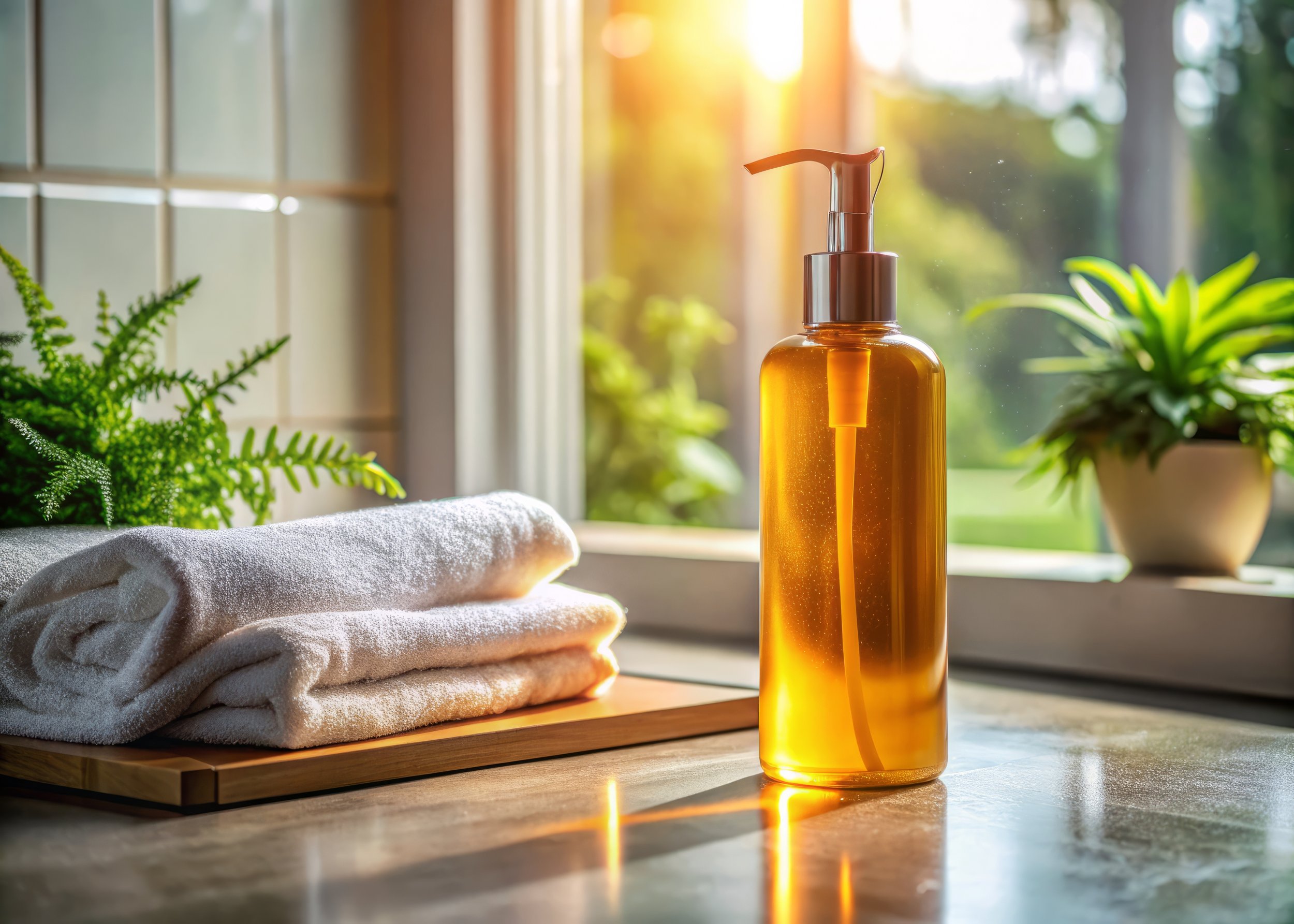
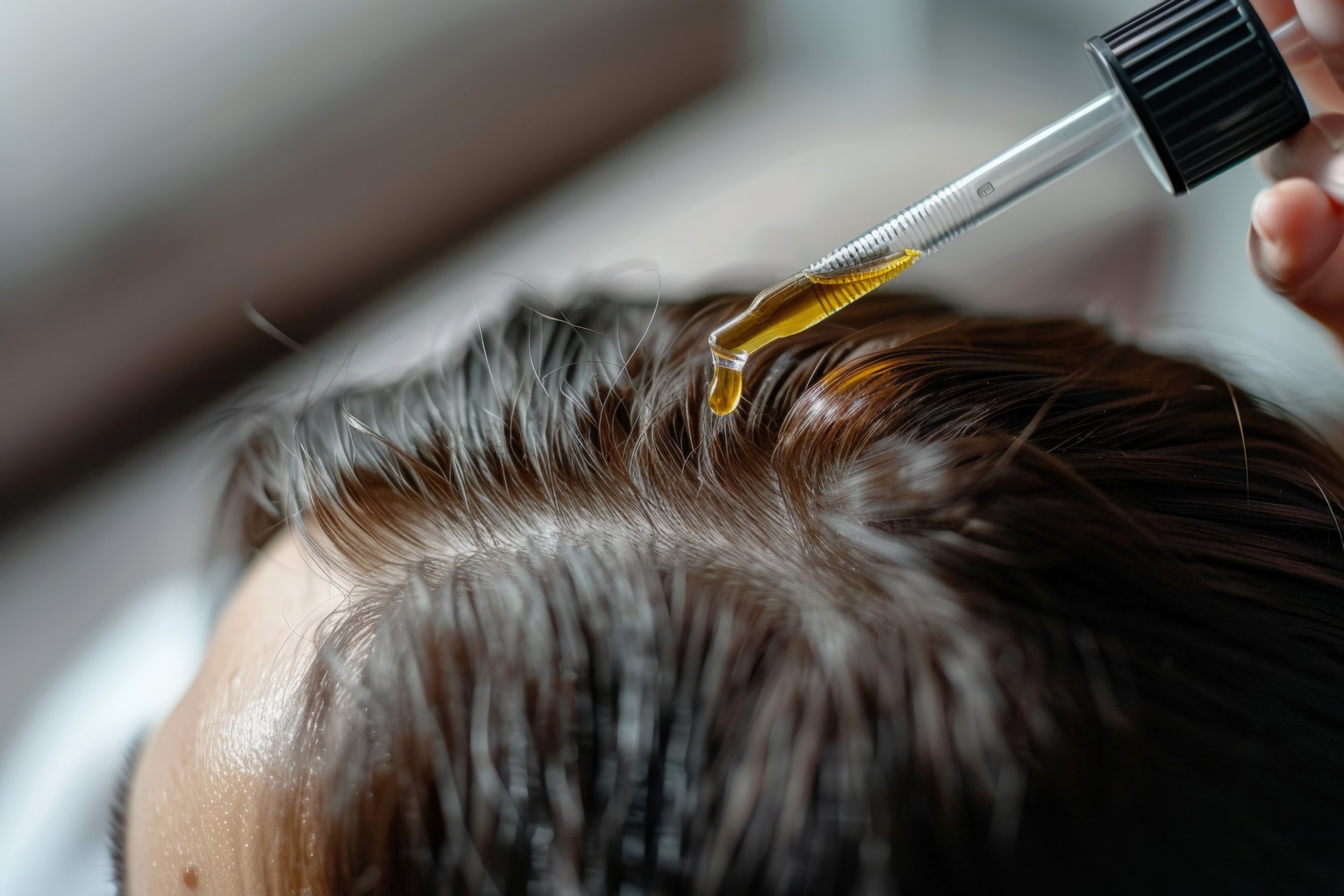
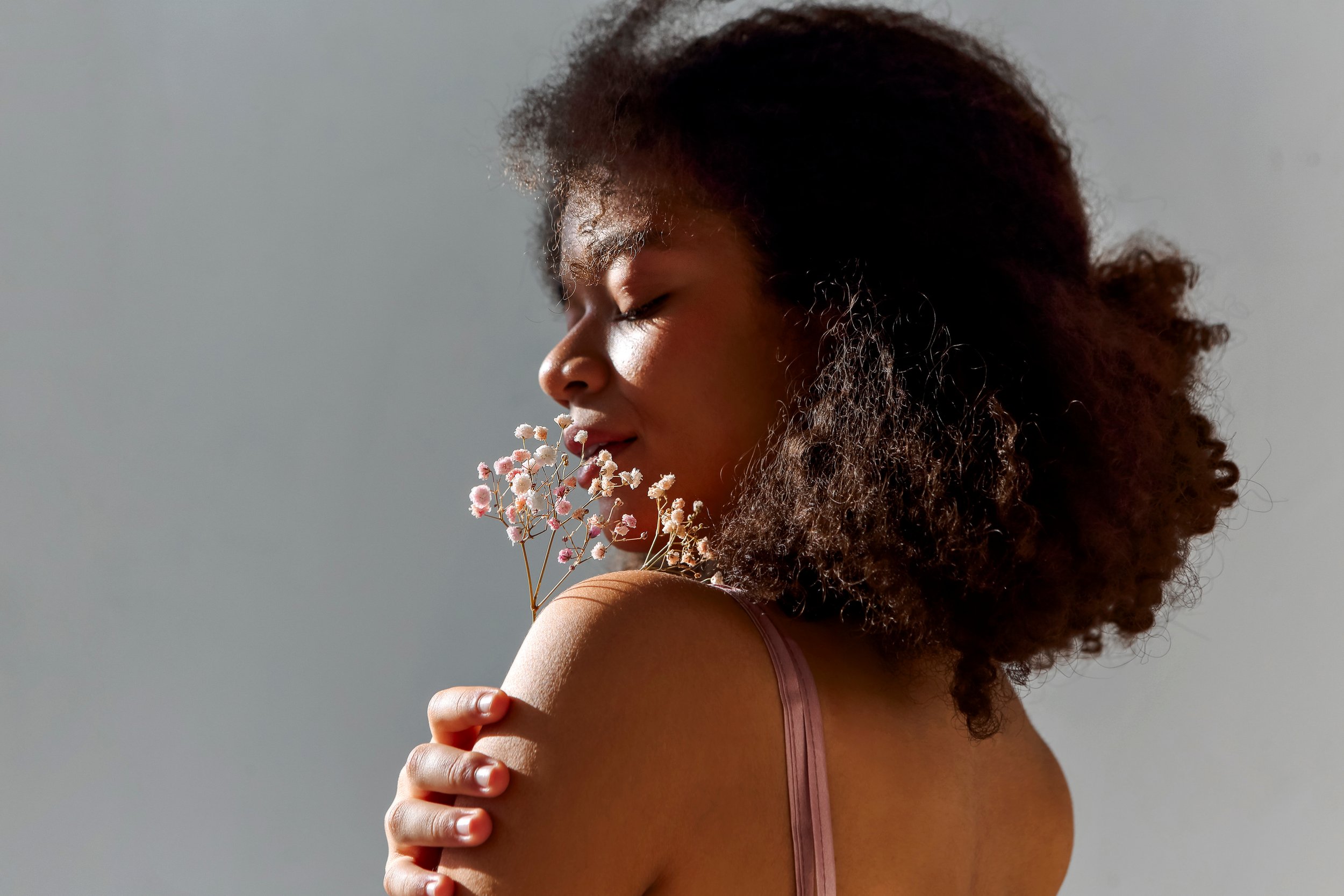
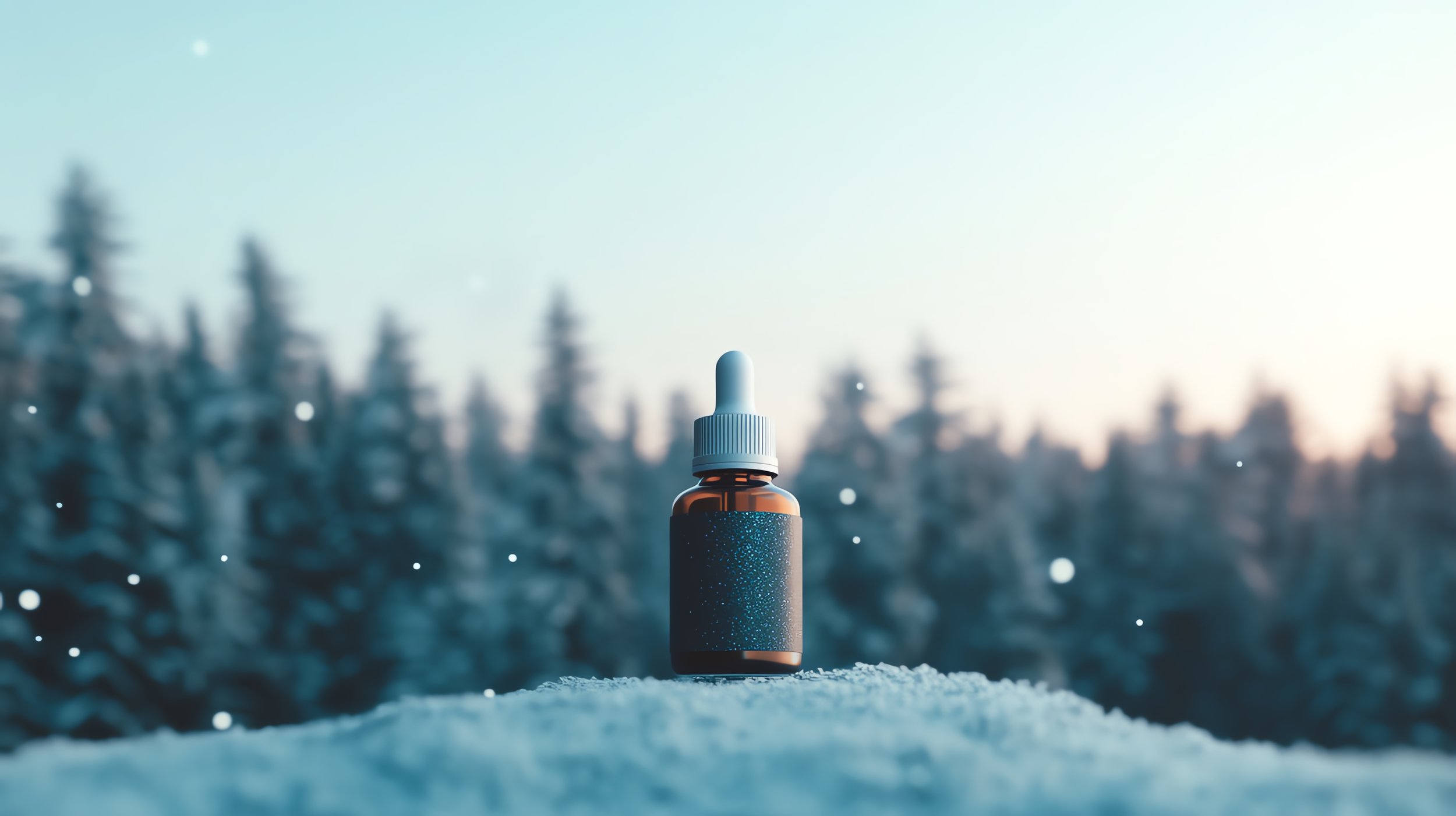
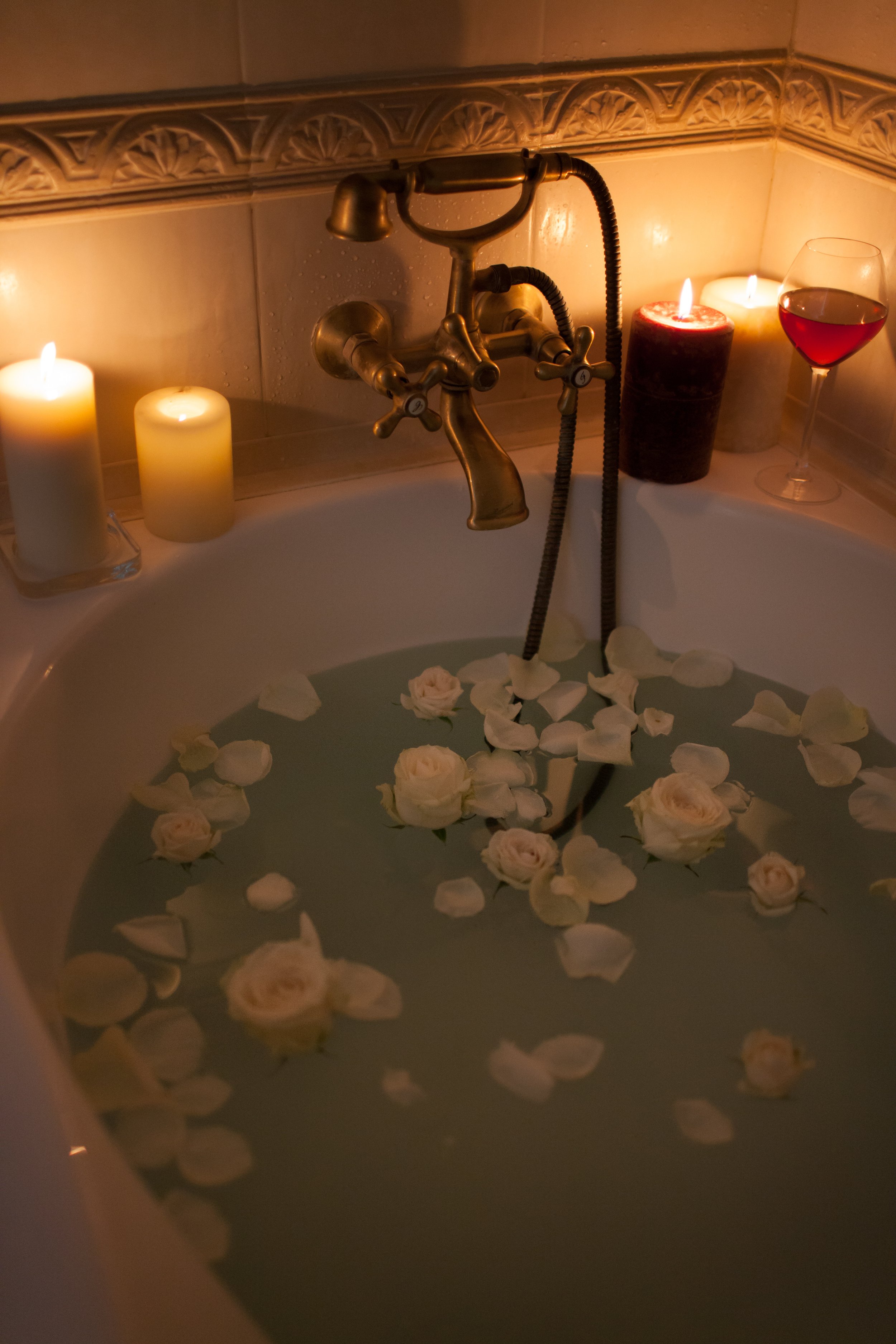
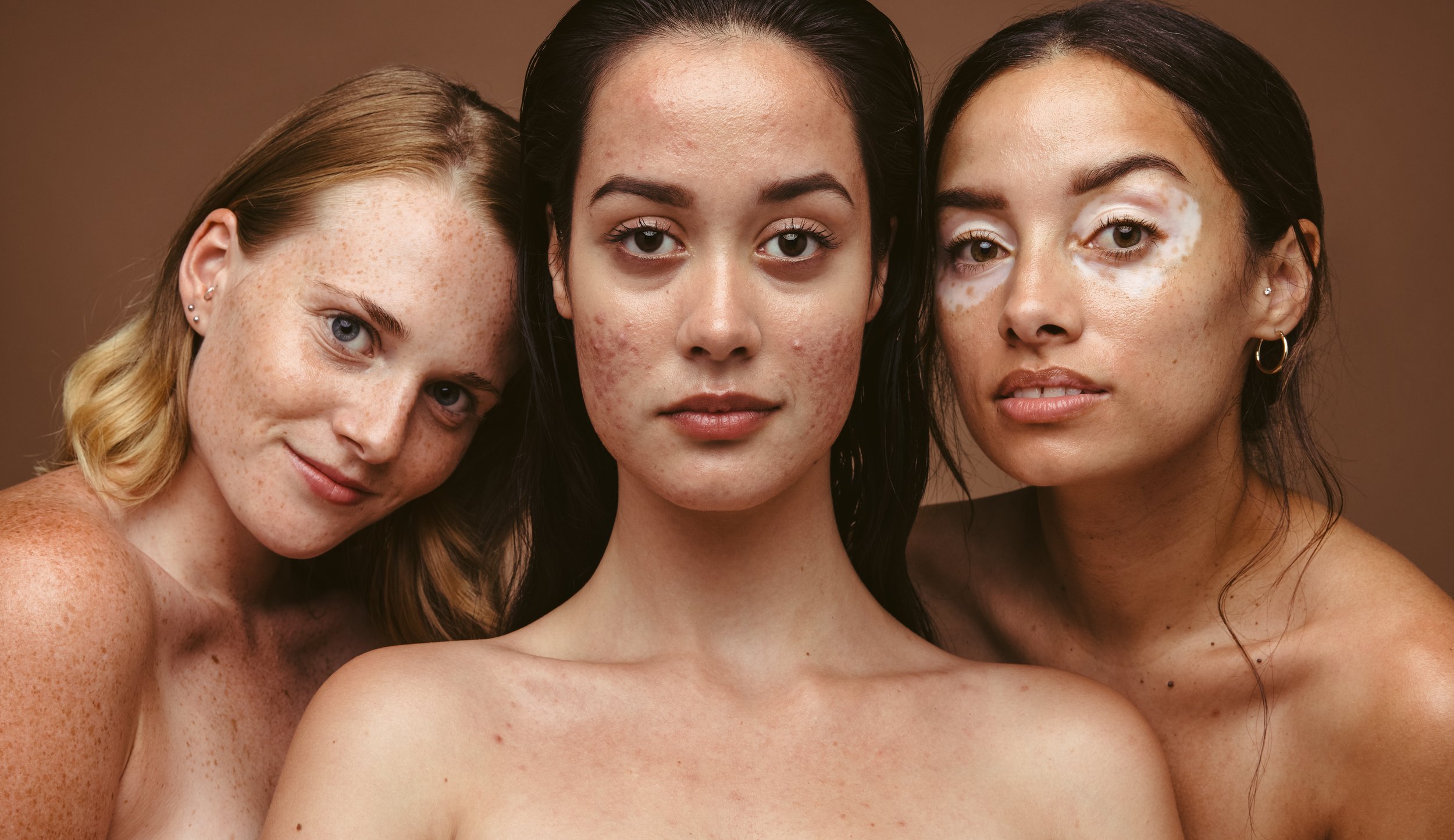
Hello and welcome! I'm Eve, a Chemist turned Herbalist, sharing the wonders of plant medicine and botanical skincare. Join me on this journey to Learn, Create, and Align your Divine!